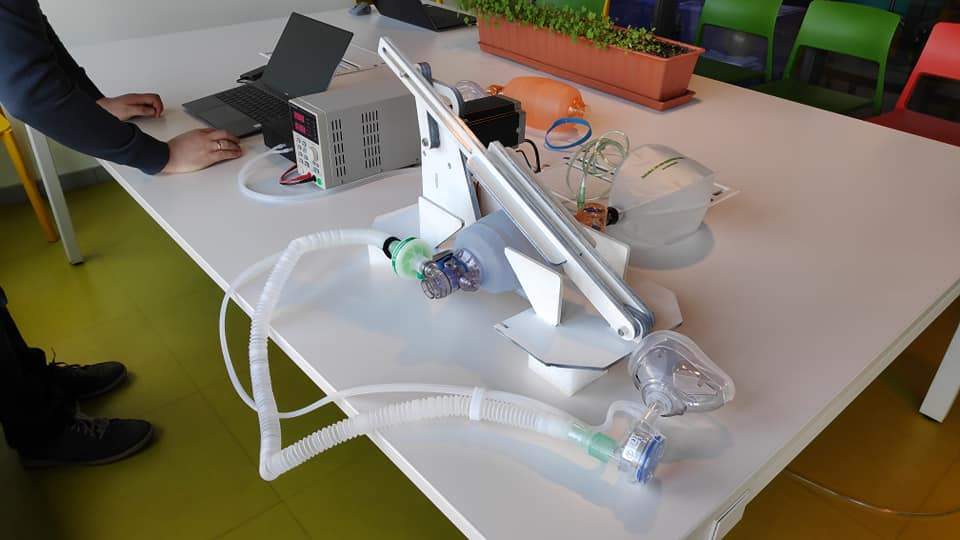The Latvian team was created during the virtual Hackforce hackathon, which aimed to use technology to tackle issues related to the global pandemic. During the hackathon the team co-created by RTU Faculty of Materials Science and Applied Chemistry Functional Materials Technology Research Laboratory researcher Guntis Kuļikovskis developed their first prototype.
“Our goal wasn't to create an alternative for solutions already on the market, but to a simplified, and at the same time functional model that would help medics save lives,” said Kuļikovskis.
They created a second prototype after consulting with anesthesiologists and reanimatologists, which is deliberately simple to maximize production speed. They're now in the process of establishing cooperation with companies to begin production. The team is also exploring how to avoid bureaucratic barriers for procurement and production.
Kuļikovskis teamed up with idea creator and engineer Einārs Deksnis, and was assisted and consulted by Dāvis Kūms, Margarita Matuļenko, Aivars Ritovs, Ilmāra Poikāna, Linda Lancere and Edgaras Zvirgzdiņš. The team placed second in the hackathon, winning eight thousand euros for further development.
Latvia isn't yet at the height of the coronavirus pandemic, but the spread of Covid-19 has exposed a global shortage of both medical staff and medical devices, including mechanical ventilator systems. An investigation by Lithuanian journalists revealed that it could take up to three and a half months to receive ordered ventilators.
As previously reported, 1.7 million euros has been allocated by the Cabinet of Ministers from contingency funds and is intended to cover the cost of purchasing the necessary personal protective equipment (including respirators, goggles and waterproof overalls) for family doctors, medical institutions, the Emergency Medical Service and the Center for Disease Prevention and Control.


























